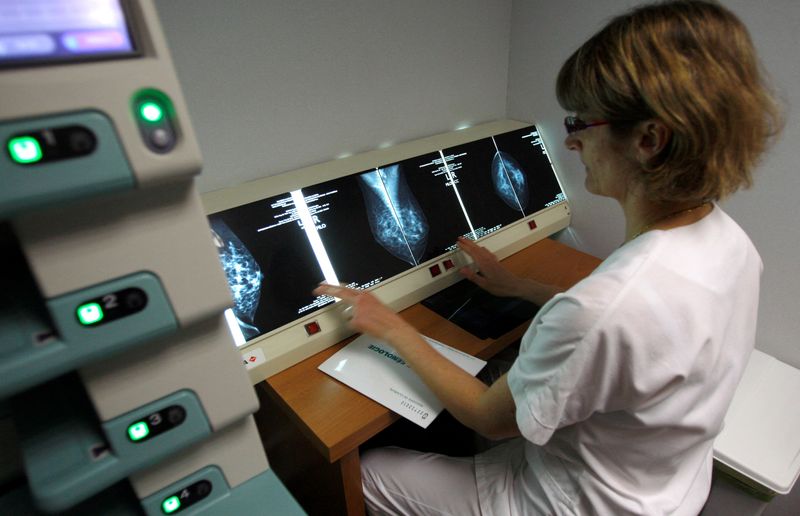By Julie Steenhuysen
CHICAGO (Reuters) - Scientists have characterized the role of thousands of mutations in the BRCA2 cancer gene, findings that may help reassure worried patients about their cancer risk or guide doctors toward better, more targeted treatments, according to a study published on Wednesday.
Harmful mutations in BRCA2 - a gene responsible for repairing damaged DNA - significantly increase the risk of breast, ovarian, prostate and pancreatic cancers.
About 45% of women who inherit a harmful BRCA2 mutation will develop breast cancer by the age of 70. But not all mutations in the gene are harmful, and many are so rare that doctors don't know whether they pose a risk or not.
The new findings, published in the journal Nature, may provide answers or a measure of relief for many people left wondering whether their mutation could prove deadly or warrant preemptive intervention, such as a mastectomy.
For their study, the researchers focused on thousands of so-called "variants of uncertain significance," or VUS, which show up on genetic tests but have yet to be characterized, leaving patients and doctors uncertain about their risk and what to do next.
"That's very disconcerting for the patient," said Mayo Clinic researcher Fergus Couch, senior author of the study.
Because the BRCA2 gene is so large, Couch and colleagues focused on all possible variants within a key part of the gene responsible for recognizing and binding to DNA. In all, they examined 7,000 variants.
The scientists then used the CRISPR gene-editing tool to insert thousands of variants of the BRCA2 gene into human cells in laboratory dishes, and counted how many of the cells died, an indication that the mutation was harmful.
Once they identified the function of the variants, they plugged the data into existing models used by geneticists and pathologists to classify patients' disease risk from specific BRCA variants.
They were able to classify 91% of all of the variants in this key part of the gene, identifying them as pathogenic, likely pathogenic, likely benign or benign, Couch said. That left only a few hundred in the VUS category.
Genetic testing companies frequently update their testing reports when new information becomes available, and Couch said he hopes the study will provide some patients with answers about whether their mutations are harmless or potentially dangerous.
"It'll resolve the issue for them," he said.

In addition to giving patients a better idea of their cancer risk, doctors may be able to use the findings to determine whether some patients with BRCA2-driven cancers might benefit from targeted therapies such as PARP inhibitors, which work well in BRCA mutation carriers, Couch said.
The new data will likely be reviewed by an expert panel that will look at all of the evidence for each variant and decide whether they agree with the findings, he said.